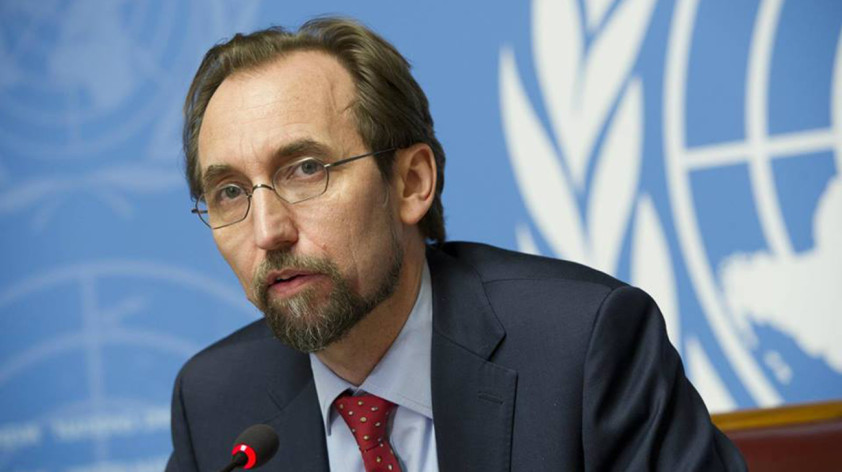
UN High Commissioner for Human Rights Zeid Ra’ad Al Hussein.
With some 6,000 Rohingya and Bangladeshi migrants believed to be still stranded at sea in precarious conditions in South East Asia, and three countries actively implementing a policy of pushing boats back to sea, the UN High Commissioner for Human Rights Zeid Ra’ad Al Hussein today urged governments in the region to take swift action to protect their lives.
The UN Human Rights chief praised Indonesia for disembarking 582 migrants on 10 May, and Malaysia for disembarking 1,018 the following day, but said that the pushbacks that had also been taking place were endangering lives, according to a message received here from Geneva today.
“I am appalled at reports that Thailand, Indonesia and Malaysia have been pushing boats full of vulnerable migrants back out to sea, which will inevitably lead to many avoidable deaths. The focus should be on saving lives, not further endangering them,” he said, adding that news that another boat, with several hundred people in abject condition, had been given provisions and then pushed back out to sea by the Thai navy on Thursday was “incomprehensible and inhumane.”
Zeid also expressed alarm at reports that countries in the region are threatening to criminalize vulnerable migrants and asylum seekers who have crossed borders irregularly.
“Governments in South-East Asia need to respond to this crisis from the premise that migrants, regardless of their legal status, how they arrive at borders, or where they come from, are people with rights that must be upheld. Criminalising such vulnerable people, including children, and placing them in detention is not the solution.”
The individual circumstances of all migrants and asylum seekers at international borders should be assessed, and appropriate protection provided according to international human rights and refugee law, including ensuring that the principle of non-refoulement is upheld, the High Commissioner added.
The UN Human Rights chief also stressed the need for further action against the traffickers and abusive smugglers who are reportedly holding thousands of migrants out at sea in cramped and horrific conditions with little access to adequate food or water, and in some cases simply abandoning them at sea.
Last year, the number of people leaving Myanmar and Bangladesh by boat is estimated to have climbed to around 53,000. Some 920 migrants are known to have perished in the Bay of Bengal between September 2014 and March this year. They have been predominantly Rohingya fleeing persecution from Rakhine State in Myanmar, with increasing numbers of impoverished Bangladeshi migrants taking to the seas over the last year.
“Until the Myanmar Government addresses the institutional discrimination against the Rohingya population, including equal access to citizenship, this precarious migration will continue,” Zeid said.
“Whether fleeing persecution, discrimination, poverty or other human rights violations, or moving in search of decent work and a life with dignity, all migrants who take to the seas in such perilous circumstances are in need of protection,” said Zeid. “Just because they have taken to boats, does not mean they forfeit the human rights afforded to every human being under international law.”
The High Commissioner welcomed the announcement that Thailand will host a regional meeting on irregular migration in the Indian Ocean on 29 May to discuss comprehensive responses to the ongoing crisis in the Bay of Bengal.
“I urge the participating governments to ensure that their responses are based on international human rights and refugee law,” Zeid said, adding that “this is a complex and multi-dimensional issue requiring a holistic response, which will include stepped-up search and rescue efforts, the timely and safe disembarkation of migrants in distress, and access to appropriate human rights protection safeguards. Dangerous interception practices, including pushing back boats that are trying to land, must be scrupulously avoided.”
A coherent, human rights-based regional response is urgently needed, and the High Commissioner highlighted the positive leadership that could be played by ASEAN in this regard.
The High Commissioner noted that the regional meeting will also seek to address root causes, and highlighted the importance of addressing the serious human rights situation in Myanmar’s Rakhine State, which he described as “one of the principal motivators of these desperate maritime movements.”
Source: The Daily Star








